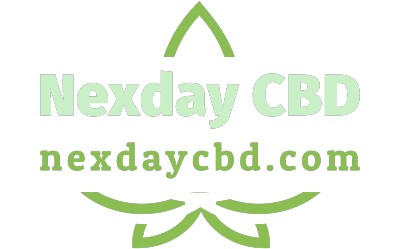The Science Behind THC and Mood
Tetrahydrocannabinol, commonly known as THC, is the primary psychoactive compound found in cannabis. Its interaction with the human endocannabinoid system (ECS) plays a crucial role in influencing mood regulation. This intricate system, composed of receptors and neurotransmitters, helps maintain balance in various bodily functions, including mood, sleep, appetite, and pain perception.
Cannabinoid Receptors and the Endocannabinoid System
THC exerts its effects by binding to cannabinoid receptors, primarily CB1 receptors, which are abundant in the brain regions associated with pleasure, memory, and coordination. When THC activates these receptors, it triggers a cascade of neurochemical events that can lead to feelings of euphoria, relaxation, and altered perception.
The endocannabinoid system (ECS) plays a vital role in maintaining homeostasis, or balance, within the body. It consists of endocannabinoids, which are naturally produced compounds that mimic THC, as well as cannabinoid receptors. These receptors are found throughout the nervous system and immune system.
The interaction between THC and the ECS can influence mood by modulating the release of neurotransmitters such as dopamine and serotonin. Dopamine is associated with pleasure and reward, while serotonin plays a role in regulating mood, sleep, and appetite. By influencing these neurotransmitter systems, THC can contribute to feelings of happiness, calmness, and well-being.
THC’s Interaction with Neurotransmitters
THC’s interaction with neurotransmitters within the brain contributes to its mood-altering effects.
- Dopamine: THC stimulates dopamine release in reward centers of the brain, leading to feelings of pleasure and euphoria.
- Serotonin: THC can increase serotonin levels, which are associated with mood regulation, relaxation, and well-being.
Effects of THC on Mood Regulation
THC beverages are gaining popularity for their potential mood-boosting effects. This is due to THC’s interaction with the endocannabinoid system (ECS), a complex network of receptors and neurotransmitters that plays a crucial role in regulating various bodily functions, including mood.
Potential Anti-Anxiety Effects
THC’s impact on mood regulation is multifaceted. It influences the release of neurotransmitters like dopamine and serotonin, which are key players in feelings of pleasure, happiness, and overall well-being.
While THC can induce euphoria and relaxation, its potential anti-anxiety effects are complex and still under investigation. Some individuals report that THC helps alleviate anxiety symptoms, possibly by reducing activity in the amygdala, a brain region associated with fear and stress responses.
However, it’s important to note that THC can also exacerbate anxiety in some people, particularly at higher doses or in those predisposed to anxiety disorders.
The individual response to THC can vary greatly depending on factors such as dosage, consumption method, individual tolerance, and underlying mental health conditions.
Alleviation of Depression Symptoms
THC’s impact on mood is complex and influenced by its interaction with the endocannabinoid system (ECS). By binding to cannabinoid receptors, particularly CB1 receptors located in brain regions associated with pleasure, memory, and coordination, THC triggers the release of neurotransmitters like dopamine and serotonin.
Dopamine, often associated with feelings of pleasure and reward, is released in higher quantities when THC activates these receptors. This can lead to feelings of euphoria and relaxation. Serotonin, a neurotransmitter involved in mood regulation, sleep, and appetite, also appears to be influenced by THC, potentially contributing to its mood-boosting effects.
While some individuals find that THC helps alleviate anxiety symptoms, others may experience an increase in anxiety, particularly at higher doses. This variability highlights the importance of understanding individual responses to THC and the need for responsible consumption.
Boosting Happiness and Euphoria
THC’s impact on mood is primarily driven by its interaction with dopamine and serotonin, two neurotransmitters crucial for regulating pleasure, reward, and overall emotional well-being.
When THC binds to CB1 receptors in the brain, it stimulates dopamine release in reward centers, leading to feelings of euphoria and pleasure. This dopamine surge contributes to the characteristic “high” associated with cannabis use.

THC also influences serotonin levels, which play a role in mood stability, relaxation, and happiness. While the exact mechanisms are complex, THC appears to increase serotonin activity, potentially contributing to feelings of calmness and contentment.
Factors Influencing THC Beverage Effects on Mood
Tetrahydrocannabinol (THC), the primary psychoactive component in cannabis, exerts its effects by interacting with the endocannabinoid system (ECS). This intricate network regulates various bodily functions, including mood, sleep, and appetite. THC binds to cannabinoid receptors, particularly CB1 receptors located in brain regions associated with pleasure, memory, and coordination.
Dosage and Potency
THC’s interaction with the ECS can influence mood by modulating the release of neurotransmitters such as dopamine and serotonin. Dopamine is associated with pleasure and reward, while serotonin plays a role in regulating mood, sleep, and appetite. By influencing these neurotransmitter systems, THC can contribute to feelings of happiness, calmness, and well-being.
- Dosage: Higher doses of THC are more likely to produce intense effects, including euphoria and relaxation. However, excessive consumption can lead to anxiety, paranoia, or other adverse reactions.
- Potency: THC potency varies widely among cannabis products. Edibles with higher THC concentrations may have a stronger impact on mood.
- Individual Tolerance: People metabolize THC differently. Those with lower tolerance may experience more pronounced effects at lower doses.
Individual Tolerance Levels
THC beverages can offer potential mood-boosting benefits due to THC’s interaction with the endocannabinoid system (ECS). This complex network of receptors and neurotransmitters plays a crucial role in regulating various bodily functions, including mood. When THC binds to cannabinoid receptors, particularly CB1 receptors located in brain regions associated with pleasure, memory, and coordination, it triggers the release of neurotransmitters like dopamine and serotonin.
- Dopamine: THC stimulates dopamine release in reward centers of the brain, leading to feelings of pleasure and euphoria.
- Serotonin: THC can increase serotonin levels, which are associated with mood regulation, relaxation, and well-being.
Method of Consumption
THC beverages can offer potential mood-boosting benefits due to THC’s interaction with the endocannabinoid system (ECS). This complex network of receptors and neurotransmitters plays a crucial role in regulating various bodily functions, including mood. When THC binds to cannabinoid receptors, particularly CB1 receptors located in brain regions associated with pleasure, memory, and coordination, it triggers the release of neurotransmitters like dopamine and serotonin.

Dopamine is often associated with feelings of pleasure and reward, while serotonin plays a role in mood regulation, relaxation, and well-being.
The method of consumption can influence how quickly THC effects are felt and their intensity. Edibles, which include THC beverages, take longer to be absorbed into the bloodstream compared to smoking or vaping. This delayed onset can result in a more gradual and prolonged effect.
Responsible Use and Potential Risks
While THC beverages offer potential mood-boosting effects, it’s crucial to approach their consumption responsibly. Individual responses to THC can vary widely, and factors such as dosage, potency, and personal tolerance play a significant role. Potential risks include anxiety, paranoia, impaired coordination, and addiction. It’s important to start with low doses, be mindful of individual reactions, and avoid driving or operating machinery after consuming THC beverages.
Moderation and Self-Monitoring
Responsible use of THC beverages involves understanding the potential benefits and risks, as well as practicing self-monitoring and moderation. Start with low doses to assess individual tolerance and avoid exceeding recommended limits. Be aware that THC effects can be delayed when consumed in edibles form.
Moderation is key to minimizing potential negative consequences. Avoid binge consumption and allow sufficient time between doses to gauge the full impact. Pay attention to how THC affects your mood, cognitive function, and physical coordination. If you experience any adverse reactions, such as anxiety, paranoia, or impaired coordination, stop using THC and consult a healthcare professional if necessary.
Self-monitoring involves tracking your consumption patterns, noting the dosages and timing of use, and observing how THC affects your body and mind. Keep a journal to document your experiences, which can provide valuable insights into your individual response to THC and help you make informed decisions about future consumption.
Potential for Anxiety or Paranoia in Some Individuals
While THC beverages may offer mood-boosting effects, it’s crucial to acknowledge the potential for anxiety or paranoia in some individuals. THC’s interaction with the endocannabinoid system can influence neurotransmitters like dopamine and serotonin, which play a role in regulating mood.
However, these same neurochemical pathways can be sensitive to fluctuations in THC levels. In some individuals, especially those predisposed to anxiety or experiencing high doses, THC may trigger heightened anxiety, paranoia, or even panic attacks.
It’s essential to consume THC beverages responsibly, starting with low doses and carefully monitoring personal responses. If anxiety or paranoia emerge, discontinue use immediately and seek guidance from a healthcare professional if needed.
Buy high-quality THC seltzers now
- Why Are My 11 Lines So Bad? - November 9, 2025
- What Is Tear Trough Filler Used For - November 7, 2025
- Weed Infused Mocktails For Every Mood - November 5, 2025
